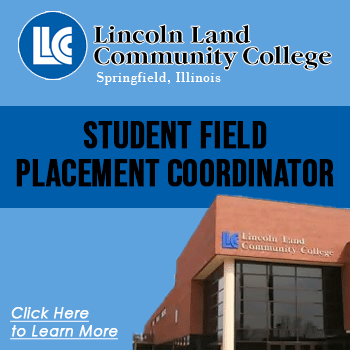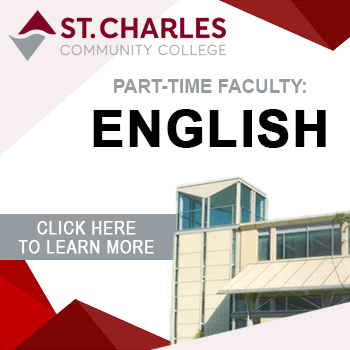This job has Expired

Associate or Full Professor & Associate Director of the Northwest Health Education and Research Outcomes Network
Job Description
Title:
280-NN_FACULTY - Associate ProfessorBusiness Title:
Associate or Full Professor & Associate Director of the Northwest Health Education and Research Outcomes NetworkAdditional Titles:
290-NN_FACULTY - ProfessorLocation:
MET PARK, WSU SPOKANE CAMPUSEmployee Type:
FacultyJob Family:
Faculty - Academic - Not OT EligiblePosition Details:
Job Description Summary
Washington State University (WSU) Health Sciences and the Department of Medical Education and Clinical Sciences of the Elson S. Floyd College of Medicine invite applications for a dynamic and engaged Associate or Full Professor passionate about community health and health equity.
This position full-time, 12-month tenure-track position is administratively in either Seattle or Spokane, WA. The faculty member’s primary responsibility will be as the Associate Director of the Northwest Health Education and Research Outcomes Network (NW HERON), a practice-based research network (PBRN) housed in the Institute for Research and Education to Advance Community Health (IREACH). NW HERON explicitly focuses on rural, tribal, and other underserved communities and the practices serving them in Washington, and neighboring regions. PBRNs are groups of primary care providers and practices working together to address health and health care priorities. Together, clinicians, patients, and academic researchers in PBRNs nationwide conduct breakthrough research on solutions to neglected and unaddressed aspects of primary care, improving the day-to-day delivery of health care. Successful academic research with PBRN partnerships requires faculty with the training and experience to conduct multi-site studies with diverse clinic and community partners, and who possess deep personal commitment to advancing health equity and social justice.
Several units within WSU including the College of Medicine and IREACH have partnered with regional health care facilities to establish NW HERON. Aligned with the land-grant missions of WSU and the College of Medicine, NW HERON aims to enhance the health and health care of residents of our state and region, especially rural, tribal, and other underserved populations. NW HERON has enjoyed rapid growth since 2019: today it has 200 clinical sites – 12 tribal partners – affiliated with the College of Medicine through memoranda of agreement. The team now includes the director, a tribal liaison, an operations manager, 2 research study staff, and co-research directors. Our new faculty member will augment existing personnel and resources within NW HERON to accelerate the pace of cutting-edge science focused on health equity and justice in Washington and across the United States. In the last year NW HERON has garnered $1.7 million in funding and has $13 million in funding pending. NW HERON is therefore poised to become an influential PBRN with the potential to facilitate groundbreaking health disparities research in service of rural, Native, and other minority communities.
The faculty member will work both on existing programs, grants, and centers; and will be fully supported to develop new areas of research aligned with his or her interests and ongoing research, primarily within the scope of NW HERON. The new hire will receive support and mentoring as needed to rapidly build connections with rural and tribal PBRN partners, to collaborate with WSU researchers and Extension faculty, and to pursue extramural funding to expand WSU’s rural health research portfolio. The new hire will be integrated into IREACH, a diverse interdisciplinary group devoted to promoting health equity and quality health care, particularly in Native populations. IREACH is one of the largest units dedicated to American Indian, Alaska Native, and Native Hawaiian/Pacific Islander health in the United States. Recent new areas of inquiry and active research include Hispanic/Latinx and rural health. Comprising about 85 faculty, post docs, and staff members, IREACH supports a multidisciplinary faculty who are conducting exciting, innovative extramurally funded research. Our 16 faculty and post docs come from public health, economics, demography, epidemiology, biostatistics, sociology, psychology, public health, public administration and management, and internal medicine. We have a strong community engagement team and have worked with more than 150 partners of all kinds in 17 states. IREACH is organized into units lead by master’s or doctoral-level leaders as follows: Fiscal/Administrative, Outreach and Engagement; Methods and Study Design; Communication; and IT. Especially important for conducting rigorous, culturally informed research is the IREACH Methods and Study Design unit comprised of 3 epidemiologists, 1 demographer, and 3 biostatisticians. In addition, IREACH has an in-house editor and a dedicated IRB/compliance coordinator. IREACH research portfolio includes community-based work on Alzheimer’s disease, cardiovascular disease, cancer, COVID-19, substance use, maternal/child health, and many other health inequities. The total active IREACH research portfolio exceeds $85 million dollars. More about the work of IREACH can be found on our home page (https://ireach.wsu.edu/).
Position Details
We seek a scientist with a cutting-edge, theory-informed vision to shift paradigms and change the status quo in the context of the mission of a land-grant university. This successful candidate will, over time, assume responsibilities for and oversee the scientific, administrative, and fiscal matters within IREACH with the other faculty co-director. The position will require daily interactions with all the IREACH units described above. This individual will need to engage with diverse health care stakeholders such as farmers, primary care providers, addiction councilors, and tribal members, to develop innovative strategies that address and ultimately solve health and health care challenges faced by rural people. Dispelling the myth that rural residents are homogeneous and applying an intersectional lens to untangling rural health disparities will be critical to the success of these objectives. In addition, because PBRNs are ideal for group-randomized trials we hope the new hire will have a background in intervention science and clinical trials; such expertise will complement the work of clinical trialists and epidemiologists already engaged in health disparities research within IREACH and the College of Medicine. Working with NW HERON will be a core component of the position; equally essential will be engaging with and capitalizing on opportunities for collaboration offered by the complementary units across WSU. In short, we are seeking an extraordinary individual committed to change – a rainmaker – who can work across communities, academic units, and policymakers.
As an integral member of NW HERON and the Department of Community and Behavioral Health, this individual will galvanize diverse teams of researchers to address the complex factors affecting rural, tribal, and minority community health. This effort will include research with rural clinical and community partners to rigorously study and test interventions in real-world settings. Topics include but are not limited to social (e.g., built environment, health care access, and structural racism), biological (e.g., genetic and epigenetic factors), and cultural (e.g., ceremonial tobacco use, health behaviors associated with rural migrant lifestyles) determinants of health. Conducting high-quality science to conclusively identify causes of health inequities and generate evidence-based solutions is extremely challenging but essential to achieving authentic health equity for all Americans. The emphasis on underserved people is both central to WSU’s mission and feasible given WSU’s statewide outreach and IREACH’s solid foundation of research with underserved populations. Because NW HERON is a network of clinical facilities, studies conducted through NW HERON offer novel opportunities not only to observe but to directly mitigate rural, racial and ethnic health disparities by changing on-the-ground practices and by helping to remove structural barriers that perpetuate inequity.
Publication in peer-reviewed journals, presentation at professional societies, and engagement with relevant community groups is expected. Our faculty typically mentor graduate students, post-doctoral fellows, and early career faculty. The successful candidate is expected to contribute to a robust and collaborative academic life, including participating in College of Medicine and university committees, and in IREACH service activities. Classroom teaching is not required or expected but may be negotiated if desired.
Most of the successful candidate’s time – up to 90% – will be focused on extramural research. This time can represent a combination of independent, collaborative, or cross-disciplinary scholarship through both internal and external grant funding. The remaining time (up to 20%) comprises grant writing and service. If mentoring or teaching are undertaken, these activities will be considered academic service.
Travel (up to 20%) is required. IREACH faculty engage in both on- and off-site work.
Required Qualifications
- An earned PhD in Public Health, Epidemiology, Biostatistics, Nursing, Medicine (i.e., an MD), or in another field relevant to public health research at the time of hire, and current appointment at the Associate or Professor rank at an academic institution of higher learning. If an Assistant Professor, must be in process of being promoted to Associate Professor and have at least 6 years’ experience as a faculty member.
- Associate Professor rank: At least 6 years' experience as an Assistant Professor or equivalent.
- Professor rank: At least 6 years' experience as an Associate Professor or equivalent. A Professor is required to have a national or international reputation in their field.
- Demonstrated experience conducting research in Native health, rural health, behavioral health/addictions, health technology, social determinants of health, environmental health or similar disciplines aligned with IREACH’s mission.
- At least 5 years’ experience working with underserved populations, preferably American Indian, Alaska Native, Native Hawaiian, Pacific Islander, or rural populations.
- Demonstrated extensive administrative skills and experience with fiscal and budgetary matters.
- Demonstrated high level organizational and multi-tasking competencies while also being flexible.
- Demonstrated ability to interact with large groups and individuals at all academic and community levels.
- Proficiency in the use of computers and software applications.
Preferred Qualifications
- Demonstrated experience mentoring junior faculty, and/or postdoctoral fellows.
- Demonstrated experience bringing together community organizations and academic constituents.
- Demonstrated experience engaging community organizations in the research process.
- Demonstrated sensitivity to and desire to promote health equity, inclusion, and diversity.
The University
Founded as the people’s university in 1890, WSU fulfills that commitment by transforming lives through education, research, and community outreach. In 2015, the University celebrated 125 years of delivering life-changing knowledge and discoveries to citizens across the state, region, nation, and around the world. The state’s only land-grant institution and one of two public research universities, WSU provides a world-class education to nearly 30,000 students through its multi-campus, statewide locations and online. The University strives to ensure that higher education is accessible at an affordable cost—a decades-long WSU commitment to the state’s citizens. The University offers more than 200 undergraduate fields of study and 127 graduate and professional degree programs. Many academic programs win recognition nationally for excellence. WSU is one of just 108 public and private universities in the United States—out of more than 4,500—singled out for its “very high research activity” by the Carnegie Foundation for the Advancement of Teaching. The University’s research agenda is focused on addressing challenges in health, sustainability, smart systems, national security, and opportunity and equity. WSU is a major driver of Washington’s economy, partnering with many of the state’s leading industries, including agribusiness, aerospace, health care, technology, and construction. The University is responsible for nearly 20,600 jobs statewide and generates an overall economic impact of more than $3.3 billion annually. The institution’s operating budget expenditures total nearly $2 billion annually.
The Elson S. Floyd College of Medicine is Washington’s premier community-based medical school. It is named after the university’s late president, Elson S. Floyd. Dr. Floyd was committed to the vision that Washington State University, as the state’s land-grant institution, should train doctors to serve all of Washington. The mission of the School is to: develop practical solutions to challenging problems in disease prevention, health care access and delivery; train primary care physicians who will work in Washington and help alleviate a shortage of doctors, especially in rural and under-served areas; and develop a strong research component, with faculty members who work on innovative projects, sharing what they know with students in classroom and research settings.
The Department of Medical Education and Clinical Sciences is a unique department within the Elson S. Floyd College of Medicine that aims to prepare insightful and compassionate physicians. Designed to ensure faculty unity and continuity across a range of clinical disciplines and specialties, members of the department work to establish educational goals, plan, and teach course content and conduct research.
The department’s primary focuses include delivering the MD program; fostering scholarship; providing service to the university and community; and serving as the academic home for clinicians and researchers. As a faculty member, the candidate will be expected to participate in all required Department of Medical Education and Clinical Sciences faculty development opportunities and to monitor your WSU issued email account for official college communications.
The Area
Located on the Puget Sound in northwestern Washington, Seattle is a large city home to over 770,000 residents, as well as Fortune 500 companies and a lively performing arts and sports scene. Known as the “Emerald City” due to the lush surrounding greenery, the city’s proximity to mountains and forest make it an eclectic mix of urban and rural living. Seattle is one of the fastest growing cities in the country. It is the home to major philanthropic organizations, many institutions of higher learning, a large diversity of cultural events, superb restaurants, parks and recreational opportunities, and international corporations such as Amazon, Facebook, Starbucks, and Boeing.
The IREACH offices in Seattle are in the middle of Seattle’s three major urban hot spots – South Lake Union, the Central Business District, and Capitol Hill – and are easily accessible from almost anywhere. Virtually all IREACH faculty and staff walk to work or take public transportation. On-site perks include restaurants, green space and patio gathering spots, complimentary citywide shuttle, EV charging stations, on-site showers/locker rooms, and bike storage. The Seattle office is linked to both the Spokane and Pullman campuses through a sophisticated videoconferencing system used for teaching classes at a distance possible.
Located in the University District along the riverfront in downtown Spokane, WSU Spokane is the University’s health sciences education and research campus. The campus is home to the Elson S. Floyd College of Medicine, which graduated its inaugural class in 2021. The University has relocated all health sciences disciplines to Spokane and built new facilities on the campus in recent years. Among the new construction is an $80 million Pharmaceutical and Biomedical Sciences Building and a $34.6 million Nursing Building. Nearly 1,700 undergraduate, professional, and graduate students pursue degrees at the 48-acre campus. The campus also houses programs offered by Eastern Washington University and is located just across the Spokane River from Gonzaga University.
Spokane is a major health care hub and the largest along the northern corridor of the United States between Minneapolis and Seattle. It offers the latest diagnostic and therapeutic care in all fields of medicine, and boasts four major hospitals, including Providence Health’s 644-bed Sacred Heart Medical Center. Complete with a rich cultural scene, historic neighborhoods and beautiful homes, a unique urban appeal, and easy access to four-season outdoor recreation, Spokane offers a high quality of life for the nearly half million residents who live in the region.
Additional Information:
Area/College: WSU Spokane Health Sciences
Department Name: Institute for Research and Education to Advance Community Health (IREACH)
City, State, Zip: Seattle, WA 98101 or Spokane, WA 99202
Department Link: https://ireach.wsu.edu
FTE: 100%
Position Term in months: 12 Months
Appointment Status: Permanent
Tenure-track: Yes
Annual Salary Range: $120,000-$250,000
In accordance with RCW 49.58.110, the above salary reflects the full salary range for this position. Individual placement within the range is based on the candidate’s current experience, education, skills, and abilities related to the position or as mandated by a U.S. Department of Labor prevailing wage determination.
WSU offers a comprehensive benefits package which includes paid sick and vacation leave; paid holidays; medical, dental, life and disability insurance package for employees and dependents; retirement; deferred compensation and optional supplemental retirement accounts. For a more detailed summary of benefits offered by WSU for Faculty visit: https://hrs.wsu.edu/wp-content/uploads/2022/04/2022-Benefit-Overview-for-Faculty-and-AP.pdf . Find total compensation information here: https://hrs.wsu.edu/managers/recruitment-toolkit/total-compensation/ .
Background Check: This position has been designated by the department to require a background check because it requires access to children or vulnerable adults as defined by RCW 74.34, engages in law enforcement, requires security clearance, interacts with WSU students in a counseling or advising capacity, has access to personal identifying and/or financial information, unsupervised access to university buildings/property, or other business-related need. A background check will not be completed until an initial determination of qualification for employment has been made.
Screening Begin Date: February 3, 2023; open until filled
Special Instructions to Applicants:
At the time of application, please be prepared to submit the following documents 1) cover letter, 2) curriculum vitae, 3) research statement, 4) diversity, equity and inclusion statement, and 5) names, addresses, and contact information of at least three references . Applicants are required to include contact information for three (3) professional reference within the application. Application materials should clearly communicate how the applicant meets all required qualifications.
Required Documents:
1) Cover Letter
2) Curriculum Vitae
3) Research Statement
4) Diversity, equity, and inclusion statement
5) Names, addresses, and contact information of at least three references
Time Type:
Full time
Position Term:
12 Month
WASHINGTON STATE UNIVERSITY IS AN EQUAL OPPORTUNITY/AFFIRMATIVE ACTION EDUCATOR AND EMPLOYER. Members of ethnic minorities, women, special disabled veterans, veterans of the Vietnam-era, recently separated veterans, and other protected veteran, persons of disability and/or persons age 40 and over are encouraged to apply.
WSU employs only U.S. citizens and lawfully authorized non-U.S. citizens. All new employees must show employment eligibility verification as required by the U.S. Citizenship and Immigration Services.
WSU is committed to providing access and reasonable accommodation in its services, programs, activities, education and employment for individuals with disabilities. To request disability accommodation in the application process, contact Human Resource Services: 509-335-4521 (v), Washington State TDD Relay Service: Voice Callers: 1-800-833-6384; TDD Callers: 1-800-833-6388, 509-335-1259(f), or hrs@wsu.edu .
*Please mention you saw this ad on AcademicJobs.*




